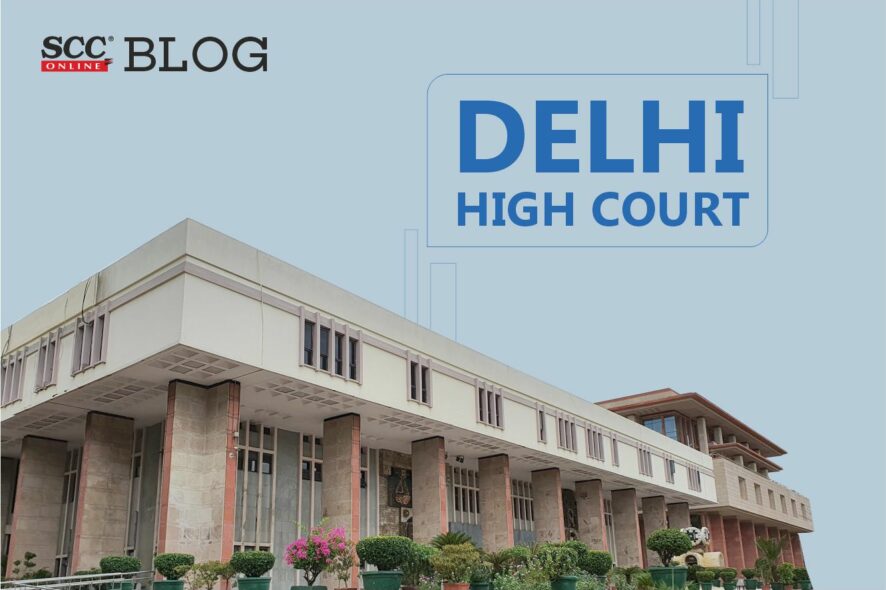Delhi High Court: In a case filed under Section 482 of Criminal Procedure Code, by an accused who happens to be the real father of the child victim in the present case seeking quashing of FIR filed under Section 10 and 12 of Protection of Children from Sexual Offences Act, 2012, Swarana Kanta Sharma, J., refused to quash the FIR in view of the contents of the FIR along with supporting statements under Section 164 of Criminal Procedure Code.
The present case is a case where the real father has been accused of alleged sexual abuse by the minor son and the respondent 2 is the victim’s real mother. The allegations against the accused are that he used to inappropriately touch his son and on multiple occasions over a period of three years, he had abused his son in the aforesaid manner.
Reliance was placed on State of Haryana v. Bhajan Lal, 1992 Supp (1) SCC 335 wherein the Supreme Court enumerated seven categories of cases where power can be exercised under Article 226 of the Constitution and Section 482 CrPC by the High Court for quashing the criminal proceedings. These are:
(1) Where the allegations made in the first information report or the complaint, even if they are taken at their face value and accented in their entirety do not prima facie constitute any offence or make out a case against the accused.
(2) Where the allegations in the first information report and other materials, if any, accompanying the FIR do not disclose a cognizable offence, justifying an investigation by police officers under Section 156(1) of the Code except under an order of a Magistrate within the purview of Section 155(2) of the Code.
(3) Where the uncontroverted allegations made in the FIR or complaint and the evidence collected in support of the same do not disclose the commission of any offence and make out a care against the accused.
(4) Where, the allegations in the FIR do not constitute a cognizable offence but constitute only a non-cognizable offence, no investigation is permitted by a police officer without an order of a Magistrate as contemplated under Section 155(2) of the Code.
(5) Where the allegations made in the FIR or complaint are so absurd and inherently improbable on the basis of which no prudent person can ever reach a just conclusion that there is sufficient ground for proceeding against the accused.
(6) Where there is an express legal bar engrafted in any of the provisions of the Code or the concerned Act (under which a criminal proceeding is instituted) to the institution and continuance of the proceedings and/or where there is specific provision in the Code or the concerned Act, providing efficacious redress for the grievance of the aggrieved party.
(7) Where a criminal proceeding is manifestly attended with mala-fide and/or where the proceeding is maliciously instituted with an ulterior motive for wreaking vengeance on the accused and with a view to spite him due to private and personal grudge.
The Court noted that the victim has narrated specific incidents of sexual abuse, the manner in which it was committed and the places, time and dates of such abuses are such that the allegations leveled are absurd, highly improbable that such incident could not have happened so as to direct quashing of the FIR.
The Court further noted that while exercising extra ordinary powers under Section 482 CrPC, they are not in a position to hold a trial, appreciate evidence or decide that the statements given by the child to the police, to the Magistrate, and to the counselor, he was taken to, were tutored, false or motivated.
The Court remarked that to deny the child victim the right to get such justice only because one of the parties involved happens to be his real father and his father and mother have matrimonial discord, will be highly unfair.
Thus, the Court held that the truthfulness of the statement of the victim will become clear only during the trial of the case after the testimonies of the child and other witnesses are recorded and appreciated on the touchstone of cross-examination, holding otherwise will amount to throttling the judicial proceedings and denying opportunity to get justice to the victim child.
[X v. State of NCT of Delhi, 2022 SCC OnLine Del 3017, decided on 20-09-2022]
Advocates who appeared in this case:
Mr. Vaibhav Mahajan, Ms. Harshita Aggarwal and Mr. Deepak Kakkar, Advocates, for the Petitioner;
Mr. Naresh Kumar Chahar, APP for the State with SI Manoj Kumar, P.S. Dwarka South for the State.
*Arunima Bose, Editorial Assistant has put this report together.






